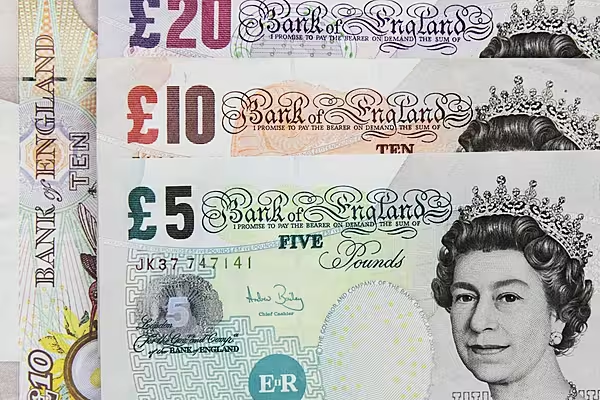British inflation unexpectedly slowed to an annual rate of 2.5% in December – down from 2.6% in November – official figures showed on Wednesday.
Economists polled by Reuters had previously pointed to a reading of 2.6% whereas the Bank of England (BoE) forecast in early November that inflation would be 2.5% in December.
Financial market experts have said they expect BoE to cut interest rates by a quarter point to 4.5% on 6 February.
Inflation Pressure
Inflation is expected to rise again due to higher energy prices, continued fast wage growth and temporary stimulus in October’s budget, and many analysts forecast it will top 3% in early 2025.
UK finance minister Rachel Reeves – who likely welcomed the December fall – said there was “still work to be done.”
The BoE has said that the UK’s persistent inflation pressure means it will move only gradually with reducing borrowing costs despite signs that the economy is losing momentum.
The likelihood of slow rate cuts has contributed to a jump in borrowing costs that has threatened to knock Reeves off target for meeting her budget rules, possibly requiring her to cut public spending.
Luke Bartholomew, deputy chief economist at abrdn, said, “For now, this slightly softer report should help reassure investors that the BoE can continue with its gradual easing cycle, and we expect the next rate cut in February.”
The BoE forecast in early November that inflation would be 2.5% in December before rising to around 2.75% in the second half of 2025.
Scott Gardner, an investment strategist at JP Morgan-owned digital wealth manager Nutmeg, said following the fall, “Policymakers and Treasury officials will be breathing a small sigh of relief.”
Core Measures
In addition to this, core measures of price growth – tracked by BoE – fell more sharply.
The fall in headline CPI rate reflected cheaper hotel rooms, air fares and clothes, as well as a smaller rise in tobacco prices than in 2023.
The ONS said part of the 26% fall in air fares compared with December 2023 might have been because this December – unlike in 2023 – it collected data for fares with return flights on Christmas or New Year’s Eve, which are unpopular dates for return travel.
Underlying measures of price growth, which the BoE sees as a better guide to medium-term price pressures, also slowed by more than expected.
Core inflation – which includes energy, food, alcohol and tobacco prices – fell to 3.2% from 3.5% in November.
Services inflation stood at 4.4% in December – its lowest level since March 2022 – compared with 5.0% a month earlier, the ONS said.
Deutsche Bank’s chief UK economist Sanjay Raja pointed to increases in April in the minimum wage and employers’ social security contributions as well as higher energy and food costs.
Raja said, “Are we on a linear path down for inflation? We don’t think so.
“That said, the jump in price momentum will likely be temporary, with price inflation expected to normalise to more target-conscious levels next year.”
Factory gate prices in December were 0.1% higher than a year earlier after November’s 0.5% drop.
Read More: UK Shop Prices Dropped In December But Likely To Rise Again In 2025 – BRC





